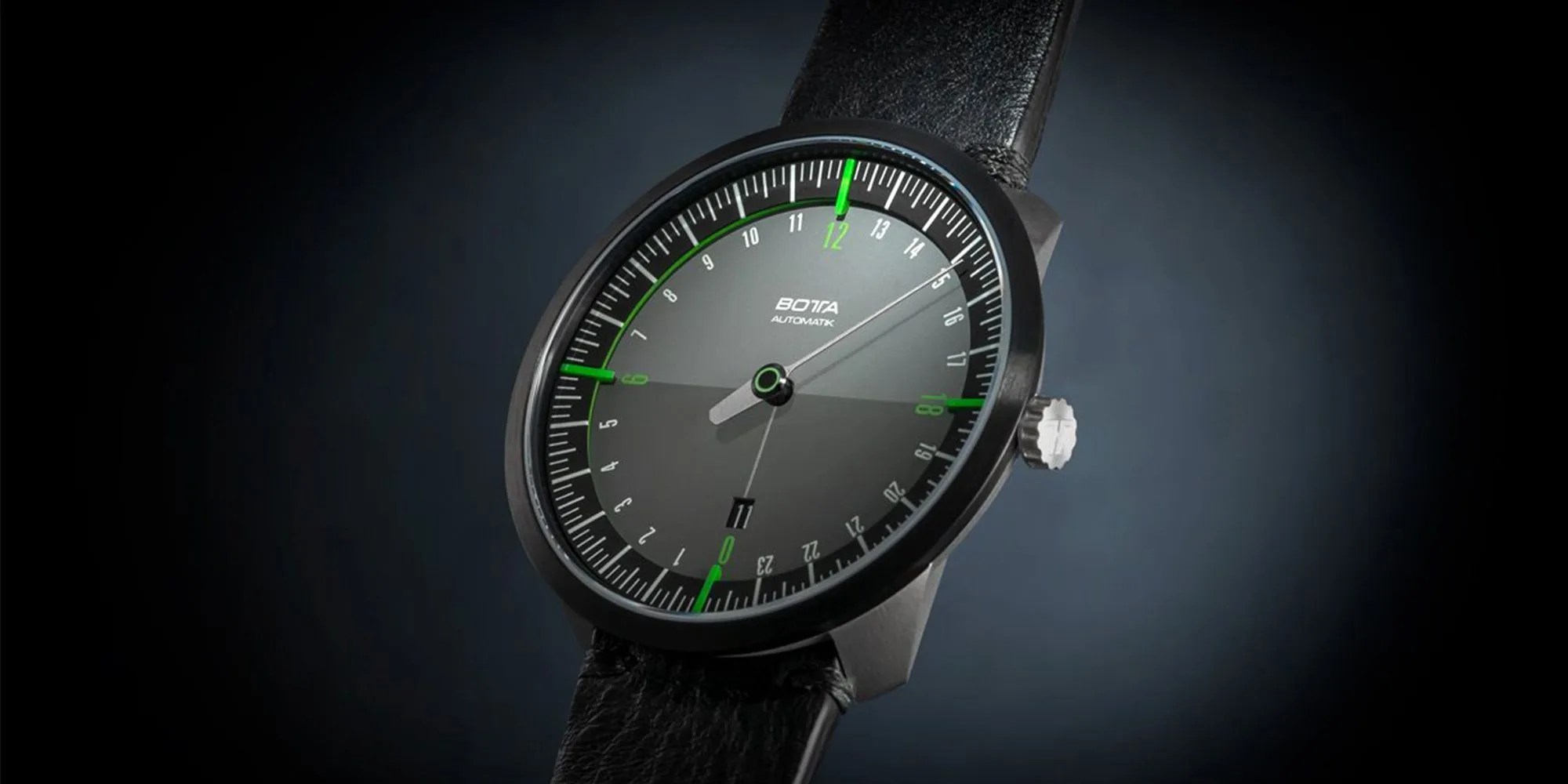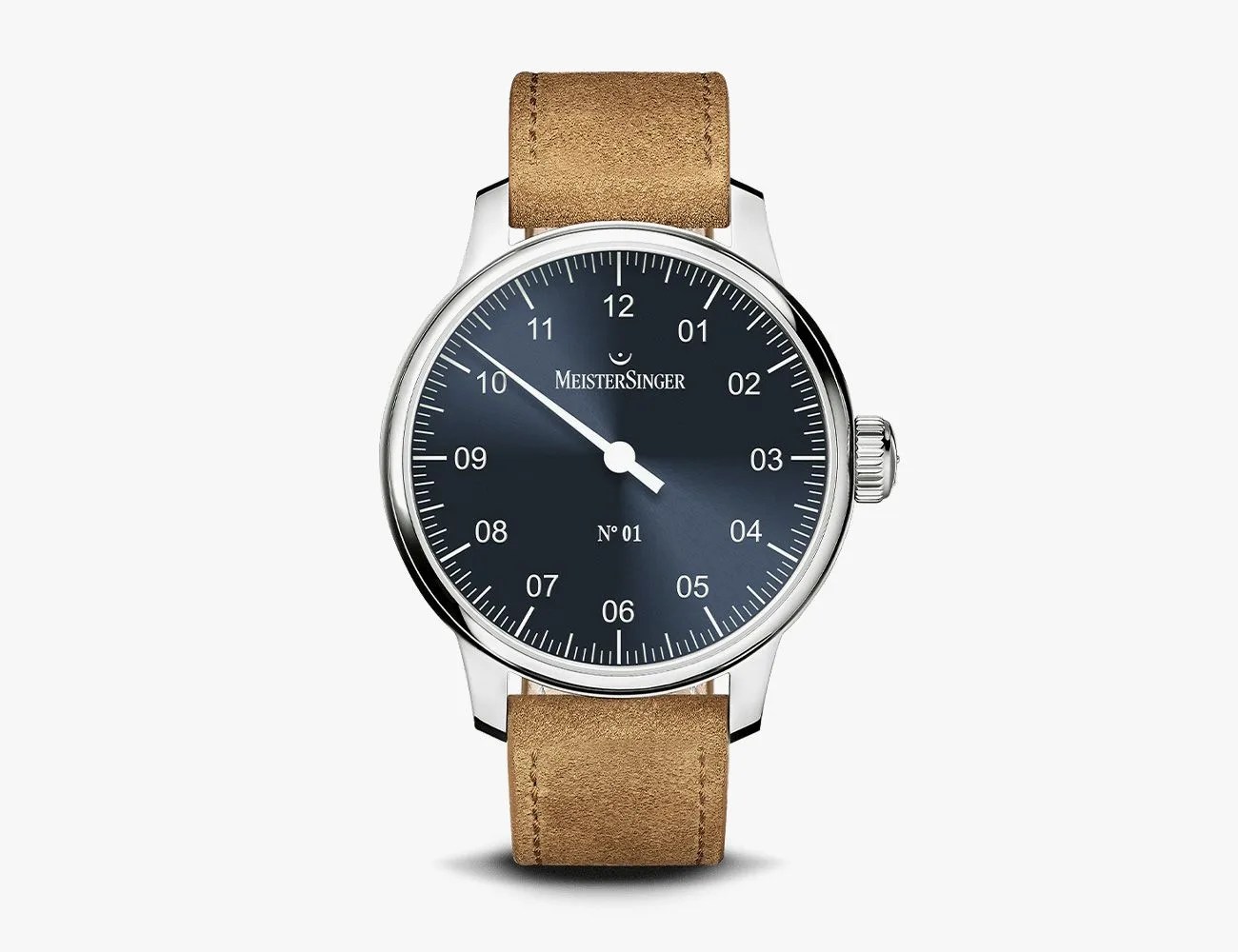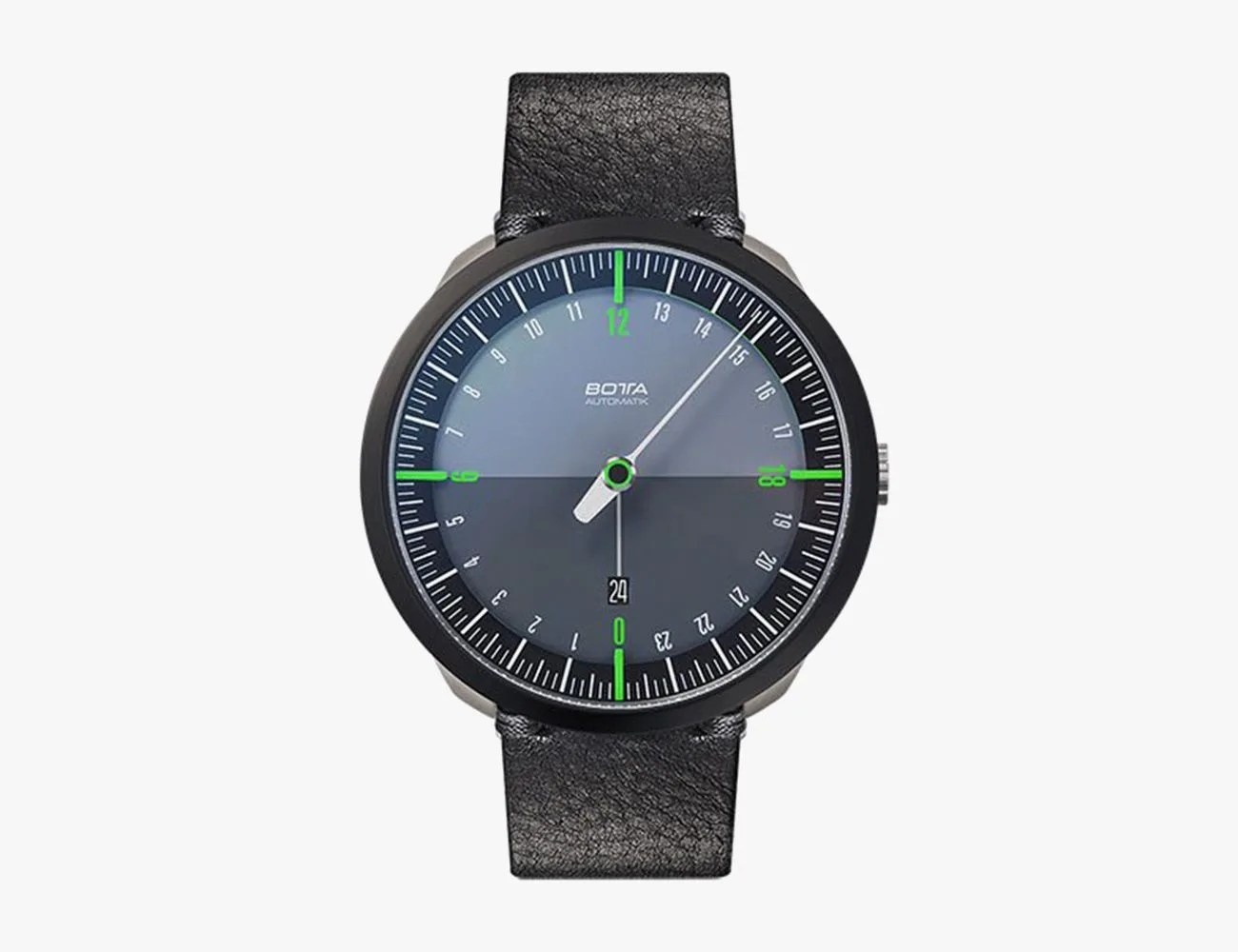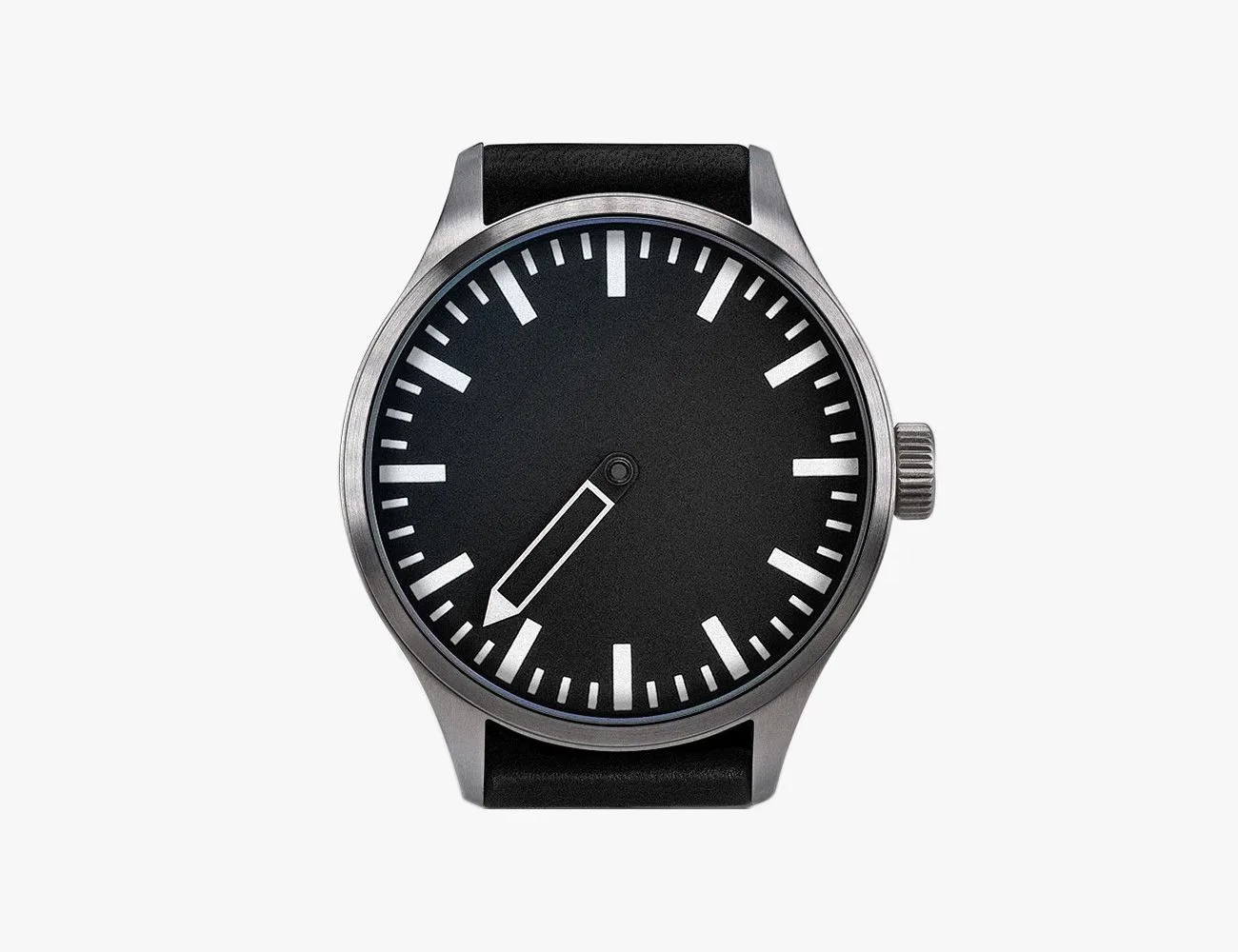“Our life is frittered away by detail. An honest man has hardly need to count more than his ten fingers, or in extreme cases he may add his ten toes, and lump the rest. Simplicity, simplicity, simplicity! I say, let your affairs be as two or three, and not a hundred or a thousand.” -Henry David Thoreau, Walden
But how? You might start with your watch and do away with the seconds hand — as nobody plans things to the second anyway. What about the minute hand, though? Can you live without that? This is precisely what a handful of watchmakers have done, seeming to echo Thoreau’s sentiment and telling you, just relaaaax.
Single-hand watches are relatively rare but constitute a clever and notable curiosity within the horological world. They’re absolutely still functional for telling the time, if less precise in doing so than traditional watches, but their concept is driven by the high-minded idea of changing how you think about time and its importance. Once you get the hang of reading them, the theory goes, you’ll see the futility of counting all those little in-between minutes. Here’s how it works:
For one-hand watches, all the work is done by the hash marks around the dial. If you think about it, it’s easy to identify the half-hour marker between two hour indices, and half-way between them is the 15-minute mark. Depending on the watch, you’ll then have two markers between them representing 5-minute increments. As long as the hour hand is long and pointy enough to indicate them precisely, you can then read the time down to an accuracy of five minutes — or simply know that it’s currently between, say, 5:20 and 5:25.
The existence of such watches poses the question: Do you really need to be more precise or punctual than that? Sure, there are times when you will, perhaps, but you’ll probably be timing things on your phone for those occasions anyway.
The other part of the concept is that this approach offers a bigger-picture view of the time: they give you a sense of where you are in the day or the hour at a glance. If you want a more precise reading you can look more closely, but these watchmakers are betting you won’t often have to or want to.
Counter to popular cultural stereotypes of rigidity and punctuality, the watch brands known best known for telling you not to “sweat the small stuff” in this way tend to be based in Germany. Although the one-hand watch concept is most familiar to watch enthusiasts through the company Meistersinger (founded in 2001), another German brand, Botta, reminds us that it’s been doing one-handed wristwatches since the 1980s.



